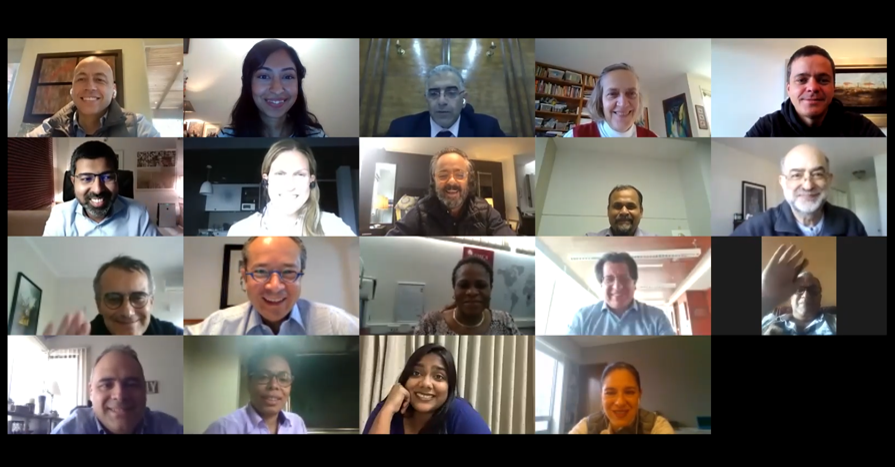During the 1st and 2nd days of November, the annual meeting of the MFN was held virtually due to the limitations imposed by the pandemic. Thus, the members of the MFN came together to take advantage of the special opportunity that the network offers them: in an environment of trust, openness and learning about the strategies, reflections, implications and challenges of leading organizations in an unprecedented context for the financial inclusion industry. The agenda consisted of two days of work.
The first day aimed to assess the global disruption experienced by microfinance, both due to COVID 19 and other relevant global and regional trends. The flow of the discussion began with the identification of the stage of the pandemic around the regions represented, to later analyze the level of disruption experienced, and the evaluation of the CEOs on the type of institutional risk. Being consistent with the contextual analysis that has been done for some years, we mapped the behavior of the most important variables (the macroeconomic condition and the degree of support for microfinance). Finally, we discussed and shared the recovery strategies undertaken by each MFI.
Many of the members emphasized the weakening of the business model as a consequence of the pandemic. However, institutions adapted swiftly to the crisis, focusing on the well being of the customer and employees, and realigning the organization.
The second day delved into the leadership challenge that each of the members is facing as CEO. It is in these discussions that the MFN reveals its richness, both by the particular openness of the interventions and by its focus on the person with the highest institutional responsibility. We used as analysis framework the managerial process, with special detail in the sense-making stage. The discussion then turned to the uncertainties of the near future, and the digital opportunities for the “return to growth” stage. The final part of the session touched on a fundamental topic: the mission and potential that MFIs have as reactivators of the economy, promoters of development and agents of social construction.
By sharing their process of sense making and reaction, it was evident that the agility and effectiveness of adaptation, in a context that did not admit mistakes, have allowed MFIs to come out stronger institutionally.
Downloads:
